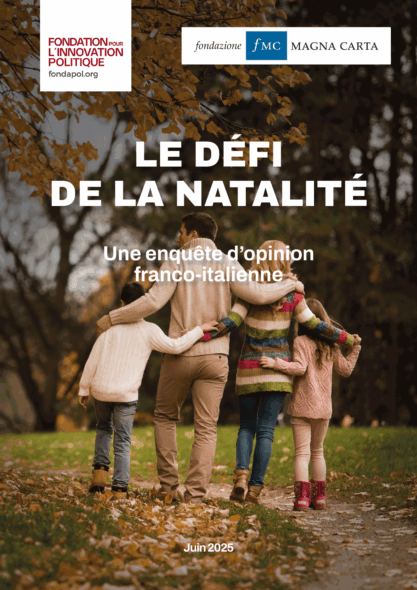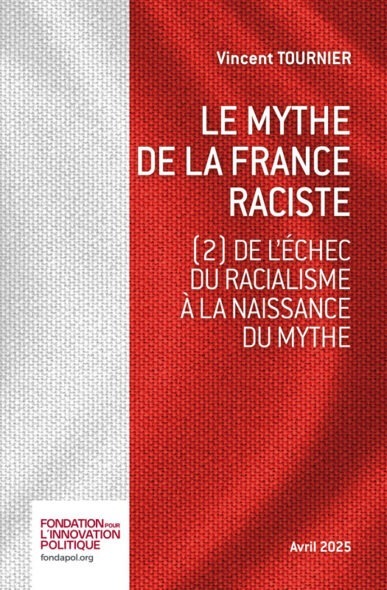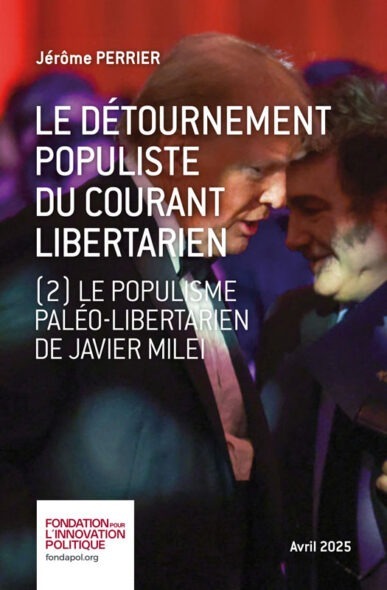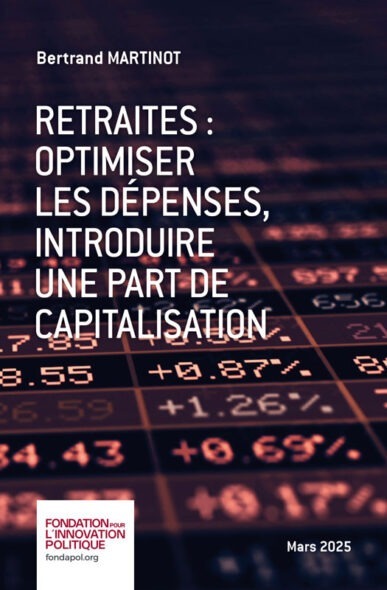« Unless we take action, the Big Tech companies will impose ideological orthodoxy »
Dominique Reynié | 20 janvier 2021

Copyright :
|
This interview was conducted in French by Guillaume Perrault from the Figaro newspaper on 11 January 2021. |
By taking the initiative to « unplug the microphones » of the resident of the White House, the mainstream platforms have provided glaring proof of their excessive power over our lives, warns the director of the Fondation pour l’innovation politique.
LE FIGARO – Twitter, Facebook, YouTube and other platforms have suspended Donald Trump’s accounts and some of his videos, having determined that he encouraged his followers to mount an insurrection. What is your view of their decision and the bitter controversy it has sparked?
DOMINIQUE REYNIÉ – Donald Trump has ended his term in office as President of the United States with some extremely serious wrongdoing. It would be good if he were held accountable for this in his country’s courts. However, the role of censor that the Big Tech companies have ultimately assumed in this affair is disproportionate. Sadly, concerns over the country descending into chaos and the loathing of Trump (which he himself has cultivated) among a section of the American public and the global intelligentsia has provided validation of the Big Tech companies’ unprecedented act of censorship by an immediate, vociferous and enthusiastic stream of approval. However, those who have approved these moves are no less irresponsible. They have celebrated the fall of an opponent, but have failed to consider the consequences of this censorship. And yet many of these figures are past or present holders of public office, sometimes at the highest level.
The transition of power is the current focus in the United States but, in a way, it has already occurred – in terms of control over freedom of opinion – between the public authorities and private forces. It would be difficult to imagine a more spectacular means of sanctioning the hegemonic role of digital platforms over our lives.
I believe that the leaders of these companies are not even aware of the power they are accumulating. In the Trump affair, it appeared as if they were managing a brand crisis from their head offices without understanding that they were in the process of overturning the historic framework of our freedoms.
The naive benevolence of their comments and justifications on this issue is staggering and extremely worrisome. Is it possible to identify who decided on this major act of censorship? If so, what was the basis of the discussion? With whom? Were key public institutions in the legal, parliamentary and academic spheres consulted? Since we are dealing with a sector that so significantly contributes to promoting an obsession with transparency, can we at least read the transcripts of these discussions?
According to Trump followers, this is an arbitrary decision illustrating Big Tech companies’ will to reject pluralism. What is your view of this criticism?
Unless we take action, the Big Tech companies will impose ideological orthodoxy. Moreover, I am certain that this process has already begun. It is in the nature of these entities. While our lives are becoming more and more dependent on these global, hugely successful, omniscient companies that never sleep, their awareness and knowledge of our lives is, conversely, steadily increasing. This organic link with their market makes them hypersensitive to their consumers’ opinions throughout the world. Those who applaud the censorship inflicted on Trump today will lament it tomorrow when these machines are used to promote tyranny. The very Big Tech companies who are censoring Trump have not deemed it fit to censor Erdogan or Khamenei.
Those who support the platforms’ decision believe the Big Tech companies have a duty to tackle « hate speech ». Is this a sound argument in your view?
At first glance, the idea of censoring « hate speech » is worthy of approval. However, this initial enthusiasm is immediately confronted with the issue of determining how to assess the content of such speech. What is « hate speech »? In some cases, it is obvious: for instance, racism, anti-Semitism, exhortation to physical violence against individuals or groups. But who knows where hate speech begins and ends? While everyone will no doubt have their own criteria and draw their own limits, subjective distinctions will not always converge to form a collective vision for the digital age, and will sometimes be radically opposed. Some regard the front pages of Charlie Hebdo as the embodiment of free speech, while others view them as hate speech.
Our public space is teeming with examples demonstrating that we are becoming less and less tolerant of these differences, and that different opinions are increasingly viewed as attacks or even expressions of hatred. It is evident that groups who believe themselves to be the target of offensive discourse are capable of reframing this discourse as « hate speech » if the right conditions are met in terms of mobilisation, expression and context. This will gradually lead to demands to censor divergent and opposing opinions.
This is a dramatic initial consequence of digital platforms’ increasing influence. By allowing censorship mechanisms as a means of suppressing debate, the digital platforms are creating a world in which the notion of « hate speech » is subject to rapid and constant change. Just look at what is happening today with efforts to reclassify content, where historic figures are ultimately condemned for transgressing limits that have been set since they were alive. The removal of statues is a prime example. But in such circumstances, who can be sure that comments made in the past will not now be reclassified as « hate speech »? Who can be confident that comments made today or tomorrow will not be reclassified as « hate speech » tomorrow or at some later date?
How can freedom and responsibility be reconciled on social media?
The very nature of Big Tech companies should be sufficient to dissuade us from delegating such control, certainly before they are themselves firmly controlled by a public regulator: they are companies – they have oligopolistic control over the digital public space, which has, de facto, become the bedrock of the entire public space. For those who are not U.S. citizens, they are foreign companies. Accepting Big Tech companies’ control over the public space is tantamount to embarking on a historic process that will see the advent of global and private governance of our freedom.
Not only do Big Tech companies raise the issue of our freedoms being controlled by digital platforms, they are also Americanising the practice of freedoms and shaping them in the mould of a global system of tolerance for which they are the sole arbiters and judges. It is possible to admire these companies and American democracy while also rejecting the application of American criteria to our freedom, particularly since such criteria emanate from these private forces.
Big Tech companies are digitising and Americanising our freedoms. It has become necessary to break up these oligopolies. It gives me hope that this is being seriously considered in the United States. However, this will not be sufficient for us. We need to see the rapid emergence of European platforms. To suggest that this is impossible is to imply that freedom will become impossible in our part of the world.
Dominique Reynié
Director of the Fondation pour l’innovation politique (Foundation for Political Innovation).











